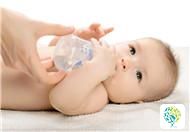1-2 years old is the best time for babies to wean. Due to individual differences in the physical condition of each baby, some babies may have poor physical fitness. If weaning is done too early, it may affect the baby's health. In such cases, the timing of weaning can be appropriately delayed, but it is recommended not to exceed 2 years. Prolonged breastfeeding can have a negative impact on the baby's psychology.

1. It is recommended to wean babies in spring or autumn. In summer, the weather is hot, and the digestive function of the baby's intestines and stomach weakens. If weaning is done abruptly, it may easily lead to indigestion or even gastrointestinal diseases such as diarrhea.
2. In winter, the weather is cold. If weaning is done in winter, the baby may have disturbed sleep due to weaning, which can easily lead to colds. Spring and autumn have moderate temperatures, and it is easier for babies to adapt to weaning during these seasons, and they are less likely to get sick.
3. Weaning should be done in parallel with the introduction of solid foods. It is not because of weaning that babies start eating solid foods. Rather, solid foods should already be well-established before weaning. Therefore, there should be no significant change in the introduction of solid foods around the time of weaning, and weaning should not affect the baby's normal intake of solid foods.
4. Weaning is a process that typically takes about a week. Babies will gradually adapt to not eating breast milk during this time. Mothers should not rush or be soft-hearted. It is best not to give up after starting the weaning process, as it can be more difficult to wean again later.

